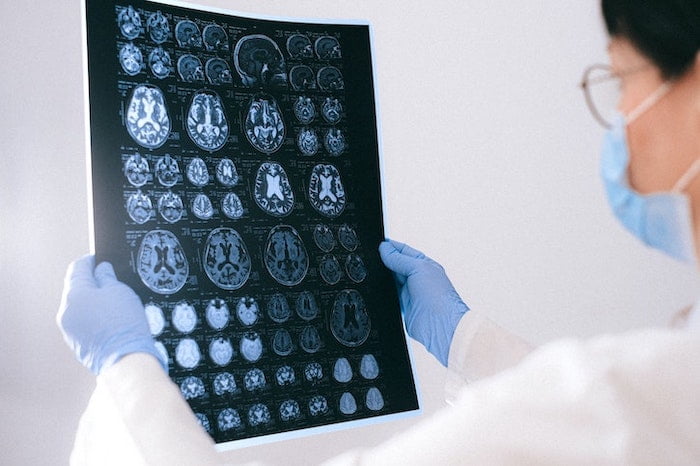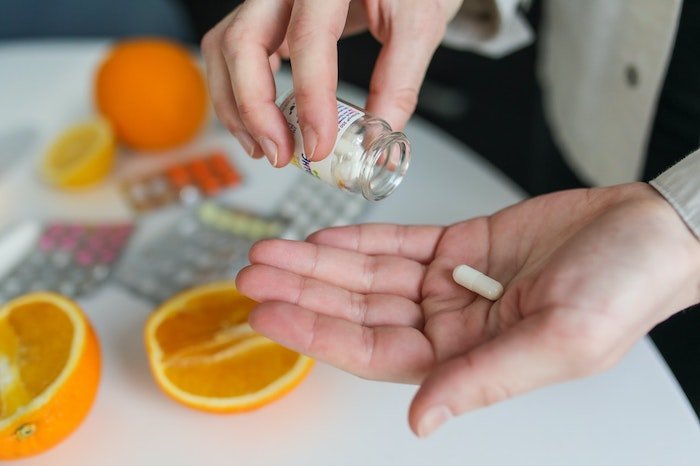Drug & Alcohol Rehab London
Quick Links for help with addiction in London
- What to do if you are seeking help in London for someone else?
- Physical and Psychological Symptoms of Addiction in London
- Arranging an intervention in London
- Funding your stay in an alcohol rehab clinic in London
- Is a drug and alcohol rehab London covered by health insurance?
- How long do patients stay at a drug and alcohol rehab in London?
- Rehab for alcoholism and heroin in London
- Rehab for cannabis and cocaine in London
- What is London Drug and Alcohol Rehab Like?
- Therapy at a Drug and Alcohol Rehab in London
- Relapse prevention planning at a drug and alcohol rehab in London
As the UK continues to struggle with overcoming the obstacles associated with drug and alcohol addiction, so does its capital, London.
London faces many social and economic problems when it comes to dealing with drug and alcohol addiction, and these are problems which a drug and alcohol rehab London seeks to overcome.
In England, it is estimated that in the year ending March 2020, around 20% of adults between the ages of 16 and 24 had consumed illegal substances. This amounts to around 1.3 million people. [1]
In 2019, around 54% of adults had confirmed that they consume alcohol each week, and alcohol-specific conditions resulted in over 347,000 hospital admissions in England in 2019 and 2020. This same year saw over 7,500 alcohol-specific deaths. [2]
Between the first of April 2019 and March 2020, over 270,000 people came into contact with drug and alcohol rehab in London and the rest of the UK. [3]
These are the numbers for people who came into contact with rehabs only, and it is estimated that thousands more remain addicted to substances yet are undiagnosed.
More specifically, the Department of Health estimated that London has almost 300,000 residents who are dependent on alcohol, with an additional 2,400,000 who are consuming alcohol at harmful levels. [4]
Furthermore, alcohol-related harm accounts for over a third of A&E admissions in London. At peak times over the weekend, this figure often doubles.
Below, we provide some statistics about alcohol and drug use in London:
| Drug and Alcohol Statistics in London | Data |
| Estimated number of adults in London who are dependent on alcohol | 280,000 |
| Estimated number of adults in London drinking at levels which are harmful or place them at increasing risk | 2.4 million |
| Cost to deal with the consequences of alcohol in London | £2 billion per year |
| Alcohol-related A&E visits in London | 35% |
While a drug and alcohol rehab in London may not solve the accidents and altercations associated with drugs and alcohol instantly, it can educate and support people, one patient at a time.
All drug rehab and alcohol rehabs in London are regulated and audited by the Care Quality Commission (CQC).
Get alcohol and drug rehab in London for a variety of addictions including binge drinking, alcohol addiction, benzodiazepine addiction, Buprenorphine addiction, cannabis use disorder, crack cocaine addiction, ketamine addiction, opioid use disorder, heroin addiction, cocaine dependence or cocaine addiction, any physical dependence or codependency, substance use disorder, and behavioural addictions such as gambling addiction and eating disorders.
Please call our 24-Hour Helpline: 0800 326 5559
The effects of addiction

Drug and alcohol addiction is a painful and exhausting experience for anyone.
It is not something anyone actually chooses; it’s something that enters your life and can completely take over, especially in a city like London, which has been labelled as one of the most stressful cities in the UK. Most people who live and work here suffer from high levels of anxiety.
For some, this stress causes them to turn to harmful ways of self-medicating these symptoms of mental health issues like depression, post traumatic stress disorder (PTSD), bipolar disorder, borderline personality disorder, obsessive compulsive disorder (OCD) or schizophrenia and anxiety.
Addiction can be costly, not just in terms of expenses, but in terms of your life, your relationships, and your freedom. It won’t go away on its own and only gets worse if you ignore it.
If you don’t seek help as soon as you notice a problem, your addiction could worsen. You could face the worst effects of it and feel the bite of horrible withdrawal symptoms.
If this is something you fear you might be experiencing, then you should seek to receive help as soon as possible. There is never a wrong time to seek help.
It doesn’t matter if you’ve only been suffering for a few weeks or if your addiction is something much more fierce and you’ve been battling it for years.
OK Rehab in London is always here to help you get through it. It’s also important that you’re ready for our help as well.
Recovery is something that doesn’t just happen to you, you have to want it, and you have to be willing to fight for it.
Although addiction can appear at any time and can sink its claws into anyone, recovery can only come to those who seek it out and truly want it. Your mindset is the most important thing in any sort of healing process.
If you aren’t prepared to heal, then seeking help is most likely a waste of your time and your money.
This is because if you’re seeking help without the intention of full recovery and complete freedom from addiction, it’s unlikely you’ll stick to the regime we have provided for you, and relapses are more sure to happen.
Please call our 24-Hour Helpline: 0800 326 5559
Seeking help for young adults and teens in drug and alcohol rehab London

Unfortunately, addiction can affect anyone, and that especially includes vulnerable young children. If you have a child, or you are concerned for a child that you may believe is struggling with an addiction, we are eager to help get them the care that they need.
Our partner rehabilitation centre caters to young teenagers under the age of 18 and only teenagers. We don’t allow any adults into this programme, so it’s a safe place for all young adults to receive treatment.
Addiction targets children that are in a stressful home environment, have become vulnerable to bad influences or have dropped out of school.
It is especially important that we help these youths get back on the right track and help them get rid of the addiction before it gets worse.
Rehabilitation works to help them not only recover from addiction but help them re-enter the world too.
It encourages them to work through their emotions, to understand what they’re feeling and why. It can also help to reunite families under family therapy sessions.
Please call our 24-Hour Helpline: 0800 326 5559
Addiction in London – A Chronic Brian Disease

While many are misled to believe that addiction is due to a poor lifestyle or a lack of inner strength, it is, in fact, classified as a chronic brain disease.
This brain disease of chronic relapsing occurs when a substance alters the reward pathways or mesolimbic pathways in the brain, coercing subjects to seek out substances in order to feel optimal or rewarded.
The brain disease model of addiction utilises physiological evidence to determine that addiction is, in fact, a disease, not a choice.
The misconception that addiction is due to poor choices has led to a huge stigma surrounding the condition. In turn, people who suffer from addiction in London are reluctant to seek help due to the social ramifications associated. [5]
Please call our 24-Hour Helpline: 0800 326 5559
What to do if you are seeking help in London for someone else?

Before you attempt to talk to the person you are concerned about, ensure that you understand drug and alcohol addiction. You need to know that addiction is not a choice; it never is.
It is something that can easily take over your life and is very painful for the person suffering through it.
Dependency on something that can drain you financially, physically, and emotionally is a very traumatic and toxic experience. Make sure that you understand this. When you do go to talk to them, make sure that you are sympathetic and understanding.
You need to hear them out and allow them a safe space to talk without judgement.
If the situation seems particularly sensitive, then we recommend you hire a professional interventionist who can coach you through it as well as be there to de-escalate a situation.
If you are concerned about a loved one and you fear that they might be suffering from addiction, we have compiled a shortlist of some signs that show they might need help.
- Large or small pupils
- Sudden weight loss or gain
- Bloodshot eyes
- Insomnia
- Unusual body odours
- Unkempt appearance
- Slurred speech
If these signs strike a chord with you, then get in contact with us today, and we can help you, and your loved one seek the help they need.
OK Rehab is able to assist with a range of addiction treatments, such as inpatient rehab, outpatient therapy, and home detox for a variety of addictions, including alcoholism, cocaine addiction, drug addiction and cannabis addiction.
We also recommend treatment for co-occurring mental health issues.
Get help now across London in Hillingdon, Notting Hill, Greater London, Wandsworth, Barnet, Newham, Hounslow, Bromley, Enfield, Havering, Kingston-Upon-Thames, Merton, Croydon, Greenwich, Lewisham, Lambeth, Camden, Chelsea, Islington, Kensington, Redbridge, Richmond, Ealing, Harrow, Westminster, Southwark, Hackney, Heathrow, the City of London, and Watford.
If you do not wish to attend a residential rehab clinic in London, you can also reach out to organisations such as Haringey Recovery Service, Westminster Drug Project, Turning Point, or Change Grow Live.
Please call our 24-Hour Helpline: 0800 326 5559
Physical and Psychological Symptoms of Addiction in London

The symptoms of addiction manifest in many different ways, and because of this, it can be difficult to identify whether someone is suffering from an addiction or not.
Some subjects may downplay their symptoms, whereas others may exaggerate them, making people’s awareness of their own substance dependence unreliable.
Symptoms of addiction can be categorised into physical and psychological symptoms. Physical symptoms can come in the form of lethargy, fatigue, nausea, diarrhoea, vomiting, seizures, and more.
Psychological symptoms, on the other hand, include but aren’t limited to anxiety, depression, paranoia, insomnia, and much more.
When subjects go a certain period of time without consuming their addictive substance, they will begin to experience these unpleasant symptoms.
This makes them feel compelled to consume the addictive substance in order to relieve them or any physical or psychological discomfort.
However, while consuming the substance might help them function, it can present a lot of danger.
The subject’s tolerance to the substance will increase with each time they consume it, and as a result, they will need to consume more each time to overcome their withdrawal symptoms. Eventually, they will be consuming dangerous levels of this substance.
This is particularly dangerous in a city with the scale and magnitude of London, where illegal substances are accessible, and the heavy consumption of alcohol is normalised.
Overcoming addiction and its unpleasant withdrawal symptoms can be overwhelming. OK Rehab can help patients overcome addiction and its symptoms via drug and alcohol rehab in London.
Please call our 24-Hour Helpline: 0800 326 5559
How do I know I’m addicted?

Aside from noting down the symptoms that you experience and comparing them to the symptoms that are associated with addiction, there are other, more objective ways that you can discover whether you are suffering from a substance use disorder.
One of the most important things people can do is seek a diagnosis from a psychiatrist, psychologist, or a licensed drug and alcohol counsellor in London.
Here, subjects will receive an objective evaluation by a professional to ensure that they know what the severity of their addiction is. However, there are other accessible ways that you can seek a diagnosis.
While self-diagnosis isn’t necessarily optimal due to the possibility of it being influenced by the subject’s own subjectivity, it is a swift option for those who want to understand the severity of their addiction more.
Please call our 24-Hour Helpline: 0800 326 5559
The CAGE Questionnaire
Image above: Woman in a drug and alcohol rehab in London
One example of this is the CAGE Questionnaire. This is a validated method implemented by clinicians to diagnose cases of alcoholism.
The CAGE Questionnaire isn’t limited to those who are based in London, as it can be easily accessed online. In the CAGE Questionnaire, there are four questions. The questions are as follows:
- Have you ever felt that you should CUT down on your drinking?
- Have you ever become ANNOYED at criticisms about your drinking?
- Have you ever felt GUILTY about your drinking?
- Have you ever had a morning EYE OPENER to get rid of a hangover?
If the subject answers ‘yes’ to two questions, it indicates to clinicians that they may be suffering from alcohol dependence. If it’s thought you are suffering from alcohol dependency, it’s likely you will be offered an alcohol detox.
However, should subjects answer ‘yes’ to the question concerning the EYE OPENER(drinking in the morning to ease symptoms) but not any other questions, it would indicate that they are suffering from alcohol addiction.
Please call our 24-Hour Helpline: 0800 326 5559
The AUDIT alcohol screening test

Another tool useful to determine the severity of someone’s alcohol addiction is the Alcohol Use Disorder Identification Test or AUDIT.
Similarly to the CAGE questionnaire, patients must answer questions regarding alcohol consumption, dependence, and consequences.
There are ten questions, and subjects will receive a score which will then indicate the severity of their alcohol addiction. Should they receive a score of eight or higher, they might be suffering from moderate alcohol addiction.
However, if subjects receive a score of 13 or higher after they answer the questions, it would indicate that they are suffering from a form of alcohol addiction which is severe.
If this is the case, they should seek the assistance of a drug and alcohol rehab in London as an inpatient. [6]
Please call our 24-Hour Helpline: 0800 326 5559
The DSM-5 Framework

Another framework of reference that can be utilised is the Diagnostics and Statistical Manual of Mental Disorders (DSM-5). This framework can be used by subjects that are suffering from any form of substance addiction.
Within the framework, there are four kinds of symptoms associated with drug and alcohol addiction. If the subject is suffering from two or three of these symptoms, they are likely to be suffering from a moderate form of addiction.
Suffering from four symptoms would indicate that they are suffering from a severe form of addiction. The symptoms are;
- Impaired control (having desires to abstain but being unable to)
- Physical dependence (experiencing withdrawal symptoms)
- Risky use (using in dangerous quantities or in unsuitable environments)
- Social problems (relationship breakdown, occupational issues, etc.)
Impaired control refers to whether subjects try to abstain but are unable to. Physical dependence refers to any withdrawal symptoms they experience, and risky use refers to consuming in either dangerous quantities or in dangerous environments.
Social problems can vary from relationship breakdown, emotional issues, occupational problems, and so on.
It is still important that patients seek a diagnosis from a medical professional in London to ensure that they know more about their condition and also that their condition is made aware to professionals.
Following diagnosis, patients can find the support they need through a drug and alcohol rehab in London. [7]
Please call our 24-Hour Helpline: 0800 326 5559
Arranging an intervention in London

An intervention can be an effective way of guiding a reluctant loved one to seek the assistance of a drug and alcohol rehab in London.
Often, it is not the subject him or herself that seeks the assistance of a drug and alcohol rehab in London, but his or her friends and family.
Interventions are particularly useful for subjects that are stubborn or turn a blind eye to their addiction. In other situations, interventions are a way for families to initially communicate and convey that they think that their loved one has an addiction.
By hiring an interventionist, they will come to assist the friends and family of the subject of concern in order to facilitate communication. Many points will be raised, notably how the subject’s addiction is affecting the rest of the friends and family.
An intervention should encourage non-confrontational communication. It is a chance for the subject to listen to why and how their addiction might be affecting not only themselves but others.
Community Reinforcement and Family Training (CRAFT) is a popular and non-confrontational form of intervention which is implemented to facilitate positive interaction between a subject suffering from addiction and worried friends and family. [8]
CRAFT is based on positive reinforcement and emphasises the well-being of the friends and family involved.
OK Rehab can help families and friends to organise an intervention by assigning them an interventionist in the London area. Then, the interventionist will help organise and regulate an intervention in order to help a loved one seek help.
Please call our 24-Hour Helpline: 0800 326 5559
What if I suffer from multiple conditions alongside addiction?

Sometimes, addiction can stem from another condition. In other cases, particular conditions can be the root cause of a drug or alcohol addiction.
At OK Rehab, we recognise the importance of overcoming problems in other areas of our life in order to recover from addiction optimally.
In a study conducted in 2020 by Public Health England’s National Drug Treatment Monitoring System, it was discovered that almost 60% of adults starting addiction treatment said that they needed additional mental health treatment.
Clearly, there is a correlation between mental health conditions and addiction.
In London, it is estimated that around one in 52 people is homeless. In addition to this, many people in London are facing stress such as financial insecurity, job insecurity, anxiety and depression due to social, academic or occupational related pressures. [9]
This can make people more vulnerable to addiction.
If a patient is suffering from multiple conditions, for example, anxiety, depression, eating disorders, bipolar disorder, schizophrenia as well as addiction, then they can seek the help they require through a private drug and alcohol rehab in London.
It is important to note that should patients want additional treatment along with their addiction programme, they should opt for a private drug and alcohol rehab in London rather than free services like that of the National Health Service (NHS).
Free addiction treatment services in London
When you call OK Rehab using the number 0800 326 5559, you will be put in contact with a trained admissions officer.
You will discuss your personal requirements, and the trained admissions officer will note these unique details in order for a consultant psychiatrist to design a tailored and personalised recovery programme.
When you enter rehab you will undergo a psychiatric assessment from a psychiatrist, who will decide if you require any psychiatric treatment.
Here, subjects should explicitly say which conditions they need treatment for. When a patient has co-occurring disorders, a dual diagnosis will be made.
They will then be referred to a suitable drug and alcohol rehab in London, which will cater to all of their unique needs.
Please call our 24-Hour Helpline: 0800 326 5559
Funding your stay in an alcohol rehab clinic in London

London is known to be an expensive city to live in; as such, funding for certain things is necessary. Rehabilitation is seen as a necessary expense as it is a medical illness that requires professional help.
Not everyone can afford the inpatient programme, which ranges from £2,000 to £12,000 total. Due to this, there are a number of organisations that can help you with funding to afford this.
One of the most popular organisations is the Clinical Commissioning Groups. The waiting list to receive help from them, however, is similar to the waiting list to receive help from the NHS.
This is why we recommend that you seek funding for rehabilitation only if you’re looking for in-depth help.
Whilst the NHS is a wonderful organisation that has helped millions of people in the UK, its rehabilitation services may leave little to be desired for some patients.
The NHS has a large number of patients to provide help for, and due to this, in order to help everyone and ensure everyone receives some sort of treatment, many of their programmes may seem to act as an umbrella treatment.
For some who have struggled extensively in their lifetime and need a bespoke programme curated just for them, private rehabilitation is the best route to go.
If this sounds like you, then you should look into receiving funding for your stay at one of our facilities. Of course, whilst you’re waiting for funding, you’ll have to prove that you’re main aim is to recover.
This is so that the organisation recognises that you’re serious and committed to healing.
After you have applied, a key worker will be assigned to you. They will help you go through the numerous modules that the organisation will give to you as you wait for your application to be viewed.
However, if your keyworker deems that you need urgent care and that your symptoms are far too bad to wait, they can re-apply for your funding on your behalf, and your application should be viewed quicker.
Please call our 24-Hour Helpline: 0800 326 5559
Is a drug and alcohol rehab in London covered by health insurance?
It is possible that some aspects of the costs of a drug and alcohol rehab in London are covered if the patient has health insurance. While this could be the case, patients should be fully aware of the terms of the policy of their health insurance provider, such as AXA or BUPA.
When someone contacts OK Rehab, they will present all the necessary information in order for the trained admissions officer to find them a suitable drug and alcohol rehab in London.
A consultant psychiatrist will also create a personalised recovery plan based on these personal and unique requirements.
Subjects can then contact OK Rehab again for the details of their programme in order to coordinate with their health insurance provider.
While insurance providers may not cover the entirety of their stay at a drug and alcohol rehab in London, they may be covered for particular forms of treatment of medication costs involved.
For example, some health insurance providers, such as Bupa, can cover mental health treatment from consultants and wellbeing therapists.
They cover up to 28 days of treatment for both inpatients and outpatients. Should patients with co-occurring disorders require mental health treatment, it is possible that these costs would be covered.
However, patients that have pre-existing health conditions, whether mental or physical, could be exempt from such treatment costs due to the nature of their illness.
It is imperative that patients read the fine details of their health insurance policy and communicate with their provider to ensure that they are covered for certain aspects of treatment.
Please call our 24-Hour Helpline: 0800 326 5559
Is addiction treatment in London accessible through the NHS?

Addiction treatment is accessible through the NHS in London. However, while the NHS is a budget-friendly option which can help a wide range of people, patients will undergo recovery as outpatients if they seek addiction treatment from the NHS.
Depending on the severity of their addiction, this isn’t necessarily an optimal form of recovery.
Those who suffer from an intense form of addiction should undergo treatment as an inpatient at a private drug and alcohol rehab in London in order to maximise their responsiveness to recovery methods.
Additionally, free services like the NHS may not be able to offer swift admission processes like that of private services. This can be very problematic if subjects’ addiction severity increases as they are waiting to be treated.
Free organisations to consider in London
Below is a list of free organisations that offer addiction support services in London:
1. C G L Southwark
Address: 146 Camberwell Rd, London SE5 0EE
Telephone: 020 8629 2348
Website: https://www.changegrowlive.org/content/cgl-southwark
2. Turning Point
Address: 32A Wardour St, London W1D 6QR
Telephone: 020 7437 3523
Website: https://www.turning-point.co.uk/services/daws
3. Lambeth CAMHS
Address: William Geoffrey House, 35 Black Prince Rd, London SE11 6JJ
Telephone: 020 3228 7370
Website: https://slam.nhs.uk/lambeth-camhs
You can also a helpline for support, such as Mind UK, YoungMinds, Rethink Mental Illness, Samaritans London and Papyrus, SMART Recovery London or find an Alcoholics Anonymous London, Narcotics Anonymous London or Cocaine Anonymous near you.
The NHS are also there to offer advice.
Organisations which give support for free include NHS Foundation Trust, Turning Point, We Are With You, National Association for Children of Alcoholics, Change Grow Live and Alateen.
Rehabs and organisations in London are advised by the American Society of Addiction Medicine and the National Institute for Health and Care Excellence so you are in good hands with person-centered care.
You may get access to sober living houses as part of your aftercare after you leave rehab to help you maintain your sobriety and help with relapse prevention.
Please call our 24-Hour Helpline: 0800 326 5559
How long do patients stay at a drug and alcohol rehab in London?

At a drug and alcohol rehab in London, patients will spend, on average, around 28 days at their designated facility.
This allows them to recover optimally by guiding them steadily through various processes such as medicated detox, therapy, relapse prevention planning, and more.
A medicated detox will usually last between seven and ten days. Here, patients will allow toxic substances to leave their bodies as they recover in a safe and medically regulated environment with the assistance of pharmacological intervention.
Following a medicated detox, patients will then spend the rest of their time undergoing therapeutic activities and relapse prevention planning.
Therapy will help them overcome many issues that they face in life, such as cognitive distortions, anxiety, trauma, and much more. These therapeutic activities also factor into relapse prevention planning techniques.
Types of therapy available at a private drug and alcohol rehab include Acceptance and Commitment Therapy, acupuncture, art therapy, cognitive behavioural therapy, dialectical behaviour therapy, drama therapy, Eye Movement Desensitization and Reprocessing, group psychotherapy, motivational therapy, Rational Emotive Behavior Therapy, brief intervention, contingency management, coping mechanisms work therapy, equine therapy, family therapy, group therapy, individual therapy, mindfulness, motivational interviewing, music therapy, and talking therapies.
Please call our 24-Hour Helpline: 0800 326 5559
Rehab for alcoholism and heroin in London

A medicated detox is necessary for patients that are physically addicted to their addictive substance. In this case, alcohol and heroin are examples of substances which present physical dependence and symptoms.
Alcohol and heroin present severe withdrawal symptoms, which can be fatal. Alcohol withdrawal symptoms can lead to seizures if they aren’t carefully monitored. With the threat of seizures looming, it can be difficult to proceed with activities such as therapy.
Because of this, it is imperative that subjects enter a drug and alcohol rehab in London as an inpatient. Here, they can undergo their medicated detox under medical supervision and 24/7 care. This will last between seven-and-ten days.
Alcohol withdrawal is treated with medications such as Librium/Chlordiazepoxide. This is a benzodiazepine with low-abuse potential that helps alleviate alcohol withdrawal symptoms, such as delirium tremens, during the alcohol detox process.
If you undertake an opioid-based detox, such as a heroin detox (heroin withdrawal), you may be given drugs such as Buprenorphine to alleviate these drug withdrawal symptoms experienced during the opioid withdrawal process.
You might also be able to receive treatment for hepatitis.
Stages of alcohol detox in London
Alcohol dependence can be confirmed fast and efficiently using the Alcohol Use Disorders Identification Test, DSM-5 or CAGE questionnaire.
Dependent drinkers will have built up a strong tolerance to alcohol, and experience unpleasant withdrawal symptoms (alcohol withdrawal symptoms) or alcohol withdrawal syndrome when they stop drinking, so these symptoms need to be managed carefully.
To ensure that the risk of seizures is curtailed our medical team prescribe patients with Chlordiazepoxide, brand name Librium, as they undergo detox as this has been proven to offer more protection against the risk of seizures.
A medically-assisted detox (alcohol detox) is needed in order to try to prevent the effects of alcohol, including encephalopathy (Wernicke encephalopathy) and delirium tremens.
Please call our 24-Hour Helpline: 0800 326 5559
Rehab for cannabis and cocaine in London

Patients recovering from cannabis use disorder or cocaine, however, will not need to undergo a medicated detox.
This is because these substances cause psychological dependencies and withdrawal symptoms, and while they cause significant discomfort, the risk of fatalities is lower than that of a physical dependency.
This also means that patients recovering from psychologically addictive substances can spend more time undergoing therapeutic activities and relapse prevention planning at their designated drug and alcohol rehab in London.
Please call our 24-Hour Helpline: 0800 326 5559
What is London Drug and Alcohol Rehab Like?
London itself isn’t known to be the most calming city in the world. In fact, newspapers, magazines and books often depict it as one of the most exciting cities.
Because of that, the centres we work with are placed just outside of London. It is located in a rural area, completely away from urban life.
When you look out of the window, you will be met with lush green grass, skies where you can actually see the stars and peaceful quiet instead of loud cars and shouting.
Our centres in London are also equipped with a number of different facilities for you to use during your leisure time, such as:
- A gym with many different instruments for you to use.
- A swimming pool
- A conservatory, perfect for the warmer months of the year. Many patients like to spend their time here socialising or reading.
- Living room
- Picnic area
- Horse riding stables
- Steam room
- Sauna
- Grand piano for the musically gifted
- Fishing lake
And to further pronounce the fact that you really won’t have to think about anything other than yourself, we have a dedicated kitchen staff on hand. They work to provide you with delicious meals in the morning, afternoon, and evening.
When you’re accepted into rehabilitation as an inpatient, there will be some rules you might need to be aware of before you attend. For example, there will be a list of things you can’t bring from home.
This isn’t a punishment but rather a precaution to ensure your safety and the safety of our other patients as well. You can, of course, bring some personal items that will make you feel more at home, however.
As well as clothing you’ll feel comfortable in, nightwear and toiletries, some patients like to also bring the following with them to rehab in London:
- Books (these may need to be approved before you bring them.)
- Journals
- Letter stationery
- Knitting projects
And much more. We’ll also recommend that you bring a form of ID too. You will also benefit from a range of holistic therapies such as Reiki, acupuncture, mindfulness meditation, Tai chi, yoga nutrition, art therapy, music therapy and equine therapy.
Please call our 24-Hour Helpline: 0800 326 5559
Therapy at a Drug and Alcohol Rehab in London

While there isn’t necessarily a ‘best’ form of therapy, there are particular forms of therapies which will benefit certain patients more. Rehabs in London offer evidence-based therapies such as brief interventions. These treatments aim to tackle the room cause of addiction.
However, a drug and alcohol rehab in London will incorporate a range of therapies to ensure that the patient’s wellbeing is restored and that they can not only recover but sustain their sobriety.
You typically begin therapy once a drug detox or alcohol detox has been completed.
Please call our 24-Hour Helpline: 0800 326 5559
Cognitive Behavioural Therapy

One of the most prolific forms of therapy at a drug and alcohol rehab in London is Cognitive Behavioural Therapy (CBT). CBT is implemented in most addiction recovery plans because of how fundamental it is to ensure optimal recovery.
During a CBT session, a professional counsellor will communicate with the patient in order to help them discover any cognitive distortions that they suffer from.
Any negative thoughts or behavioural patterns discovered can be used to overcome in order to build more positive habits.
Please call our 24-Hour Helpline: 0800 326 5559
Dialectical Behavioural Therapy
Similar to CBT, Dialectical Behavioural Therapy (DBT) helps patients manage any negative thought processes or behavioural patterns that they have embodied.
However, what separates DBT from CBT is that it places more emphasis on the emotional side of dealing with addiction.
Dealing with addiction is tough and can exacerbate already existing emotional or mental issues.
DBT will help patients that suffer from trauma and addiction to manage any intense feelings that they have in order to make their journey towards sobriety more achievable.
DBT typically takes place via group therapy, but you can also benefit from DBT in individual therapy and one-to-one therapy settings.
Please call our 24-Hour Helpline: 0800 326 5559
Motivational Interviewing

Motivational Interviewing is a therapy which is based on the language of change. It is an objective-oriented style of therapy, and it helps patients consolidate their goals by speaking them into existence.
During a motivational interviewing session, a counsellor or interviewer will ask the patient a number of questions. This could vary from why they want to recover, whether their motivation is intrinsic or extrinsic, and so on.
The effect comes into place when the patient begins to openly communicate about their intentions with another person. This will help them manifest their goals by making them more tangible.
Please call our 24-Hour Helpline: 0800 326 5559
Family Therapy
Family therapy, although often overlooked, is an important form of therapy which can help the patient recover and stay in recovery optimally.
The family is considered to be the first line of defence should a subject face relapse triggers. Therefore, it is important to educate the family on the complexities of addiction and also on how to behave around their loved ones.
Issues such as Codependency are also tackled during family therapy sessions.
Please call our 24-Hour Helpline: 0800 326 5559
12-Step Facilitation Therapy

12-Step Facilitation Therapy is described as an active engagement strategy which can help subjects sustain abstinence by actively participating in self-help groups. [10]
Some of the key principles of 12-Step Facilitation Therapy include acceptance, surrender, and active involvement.
Accepting that addiction is a chronic disease which is essentially uncontrollable.
Surrender is the surrendering of oneself to the fellowship and the support structure, and active involvement is the participation that the subject should commit to during sessions.
Please call our 24-Hour Helpline: 0800 326 5559
Relapse prevention planning at a drug and alcohol rehab in London
While the purpose of entering a drug and alcohol rehab in London is to overcome addiction, it is vital that the patient knows how to stay in recovery.
A drug and alcohol rehab in London will utilise relapse prevention planning strategies to ensure that the patient’s recovery is sustainable.
Relapse prevention planning will help patients identify, avoid, and overcome relapse triggers which pose a serious threat to their recovery. Patients will be well-equipped to navigate high-risk situations which could result in a relapse.
Relapse prevention is about developing coping mechanisms to help you navigate triggers as and when they arise in your day-to-day life.
In London, there are many social and environmental factors which pose high-risk situations for people fighting addiction.
Whether someone in London is facing work, social, or academic pressures, the stresses associated with modern, urban life can present many problems for someone and expose them to addiction.
You will also be encouraged to attend 12-step meetings offered by Alcoholics Anonymous, Narcotics Anonymous and Cocaine Anonymous in London. These encourage sobriety by giving yourself over to a higher power. An alternative to the 12-step programme is offered by SMART Recovery. Family members affected by a loved one can attend groups held by Al-Anon and Alateen.
Aftercare may also take place in sober living houses. This is where you live within a facility that promotes recovery 24/7.
Get in touch today in London
Admitting that you have an addiction to drugs and alcohol, and seeking help, is a difficult but important step towards your recovery. At OK Rehab, we understand that you may be feeling reluctant, embarrassed, or even full of dread.
However, our team is compassionate and will talk to you confidentially about your addiction.
Then, we’ll assess what treatment would be best for you, and then we’ll arrange a date and budget for rehab that suits you. All drug and alcohol rehabs are registered and audited by the Care Quality Commission (CQC).
To take the first step towards drug and alcohol rehab in London, call us on 0800 326 5559 or fill out our online enquiry form.
OK Rehab offers support across London in Hillingdon, Notting Hill, Greater London, Wandsworth, Barnet, Newham, Hounslow, Bromley, Enfield, Havering, Kingston-Upon-Thames, Merton, Croydon, Greenwich, Lewisham, Lambeth, Camden, Chelsea, Islington, Kensington, Redbridge, Richmond, Ealing, Harrow, Westminster, Southwark, Hackney, Heathrow, the City of London, and Watford.
Please call our 24-Hour Helpline: 0800 326 5559
References
[1] Drug Misuse in England and Wales: Year Ending March 2020 https://www.ons.gov.uk/peoplepopulationandcommunity/crimeandjustice/articles/drugmisuseinenglandandwales/yearendingmarch2020
[2] Alcohol Statistics: England https://researchbriefings.files.parliament.uk/documents/CBP-7626/CBP-7626.pdf
[3] Adult Substance Misuse Treatment Statistics 2019 to 2020 https://www.gov.uk/government/statistics/substance-misuse-treatment-for-adults-statistics-2019-to-2020/adult-substance-misuse-treatment-statistics-2019-to-2020-report#:~:text=There%20were%20270%2C705%20adults%20in,132%2C210%20in%202018%20to%202019).
[4] Tackling Alcohol Misuse in London https://www.london.gov.uk/what-we-do/health/tackling-alcohol-misuse-london
[5] Frontiers – Resocialising the Vulnerable Brain: Building an Ethically Sustainable Brain Disease Model of Addiction https://www.frontiersin.org/articles/10.3389/fsoc.2018.00039/full#:~:text=The%20brain%20disease%20model%20of%20addiction%20(BDMA)%20states%20that%20addiction,is%20portrayed%20in%20the%20model.
[6] Alcohol Use Disorders Identification Test (AUDIT) https://auditscreen.org/
[7] DSM-5 Criteria for Addiction Simplified https://www.addictionpolicy.org/post/dsm-5-facts-and-figures
[8] The CRAFT Approach: Encouraging Healthy, Constructive, Positive Changes For Your Family https://drugfree.org/article/craft-approach-encouraging-healthy-constructive-positive-changes-family/
[9] Substance Misuse Treatment for Adults: Statistics 2019 to 2020 https://www.gov.uk/government/statistics/substance-misuse-treatment-for-adults-statistics-2019-to-2020
[10] 12-Step Facilitation Therapy (Alcohol, Stimulants Opiates) https://nida.nih.gov/publications/principles-drug-addiction-treatment-research-based-guide-third-edition/evidence-based-approaches-to-drug-addiction-treatment/behavioral-therapies/12-step






